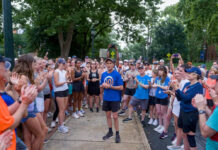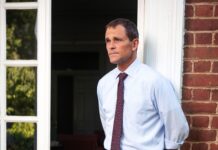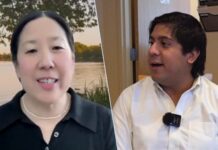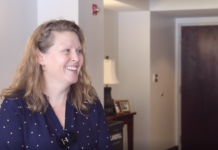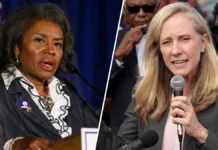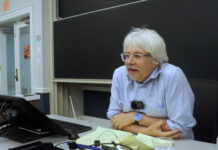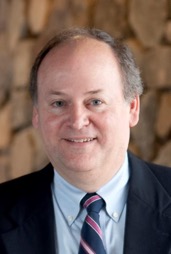 Fred Shackelford, an alumnus of UVa and WUVA News, is the author of a new, acclaimed thriller entitled The Ticket.
Fred Shackelford, an alumnus of UVa and WUVA News, is the author of a new, acclaimed thriller entitled The Ticket.
Shackelford’s work has been the subject of rave reviews by everyone from Publishers Weekly to UVa’s own celebrated economics professor and mystery writer, Kenneth Elzinga, but the author admits that his budding career as a successful mystery novelist came as something of a surprise to him.
“I do a lot of writing at my job, but it’s a different kind of writing,” Shackelford told the Daily Progress. “I’ve written thousands of pages of legal documents, none of which have my name on them. The novel was a way to try something different.”
Fiction, after all, is not his primary field. Shackelford works as a practicing attorney in Albermarle County, where his family has lived for nine generations.
Now, the lawyer’s first suspense novel is being described by Elzinga as “a page turner” that he “couldn’t put down.”
The Ticket follows main character and antihero Channing Booker. After winning the Mega Millions lottery, Booker devises a scheme to hide his new fortune from his estranged wife; he plans to have a friend claim the $241 million jackpot and secretly return the money after Booker finalizes his divorce. However, when he arrives home the next evening, Booker discovers that his wife has moved out with all of her possessions — including the rare book in which he hid the winning lottery ticket.
The mystery has already earned a number of accolades. It was a finalist for The Clue Awards from Chanticleer Book Reviews, a finalist for the National Indie Excellence Awards, and a quarterfinalist in the Amazon Breakthrough Novel Award Contest. While The Ticket is Shackelford’s first novel, it is not his first book; he previously published Judges Say the Darndest Things in 2004, a collection of humorous excerpts from American legal opinions.
Shackelford’s advice for aspiring authors can be summed up in two words: patience and perseverance.
“My advice to other first-time novelists is to be aware that it’s going to be a long process, and to work on the editing after you’re finished,” Shackelford said. “I had no idea how much editing and polishing I still needed to do when I finished my manuscript. It was 117,000 words when I finished, and 93,000 words when the editing was done.”
Shackelford encourages current UVa students interested in writing to take advantage of all the University has to offer.
“I would say, take English courses, try to work on a more or less regular schedule, have discipline, and understand it’s a marathon, not a sprint,” he advised.
The author also emphasized the importance for students to read, regardless of future ambitions, and he warned against deciding on a career path too early.
“With a liberal arts education, you have a broad array of choices,” he explained. “There’s plenty of time. You have plenty of options, and you have to be adaptable.”
“You may not get your ideal job right at first, so you have to be flexible when you’re looking for a job,” he continued. “You can always change. You can learn something from any job, and apply those skills to something else. You don’t have to choose in your first year.”
Shackelford described his belief that careers can evolve, with aspects both creative and practical. He urged students to push past professional setbacks.
“I can tell you in writing a novel, you develop a thick skin, because it’s very hard to find an agent or a publisher, and you get a lot of rejections along the way before you find somebody who will take your book,” he said. “I lost track of how many rejections I had. You just have to keep trying.”
Shackelford said the evidence for this lies in some of the most popular novels of all time. “Lord of the Flies was rejected 21 times, Gone with the Wind, 38 times!“ he said. “Even the best books get rejections.”
Looking forward, Shackelford plans to write a screenplay based on The Ticket, and he hopes to see it made into a movie. However, when asked if he knows what the future holds, he did not seem too worried.
“Well, we’ll find out!” he said.







